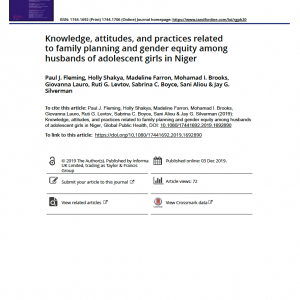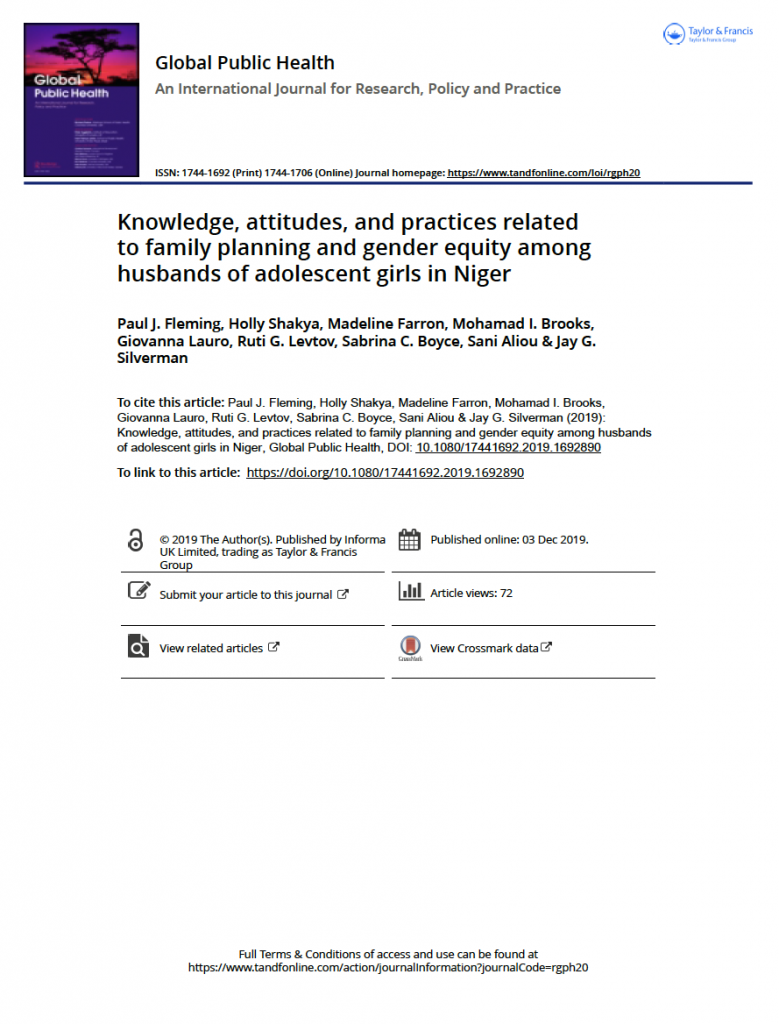“Knowledge, attitudes, and practices related to family planning and gender equity among husbands of adolescent girls in Niger” is an article published in the Global Public Health journal, which stems from Equimundo, The OASIS Initiative, and Center on Gender Equity and Health at the University of California, San Diego’s Child Marriage, Fertility, and Family Planning in Niger: Results From a Study Inspired by the International Men and Gender Equality Survey (IMAGES) report.
Despite having the highest fertility rate in the world, research on Niger men and family planning (FP) is limited. This article presents survey data collected in the Dosso region of Niger in 2016 from 1136 men who are the husbands of adolescent girls. The article reports descriptive statistics, bivariate and multivariable logistic regression on three dichotomous outcomes: (a) knowledge of modern contraceptives, (b) beliefs that only husbands should make FP decisions, and (c) current FP use.
About 56% had ever heard of the pill, 6% had ever heard of an intrauterine device, and 45% had ever heard of an injectable. In our multivariable analyses, the report finds: a man knowing at least one modern method was significantly associated with his age, wife’s education level, gender ideology, and wife’s say in healthcare decisions; men’s belief that men alone should make FP decisions was associated with husband’s Quranic education, gender ideology, and attitudes towards violence against women; men’s reports of adolescent wives’ current family planning use was associated with men’s Quranic education, women’s involvement in her own healthcare decisions, and belief that men alone should decide about family planning. Finding suggests that interventions should target aim to reduce gender inequities to increase family planning utilization.

